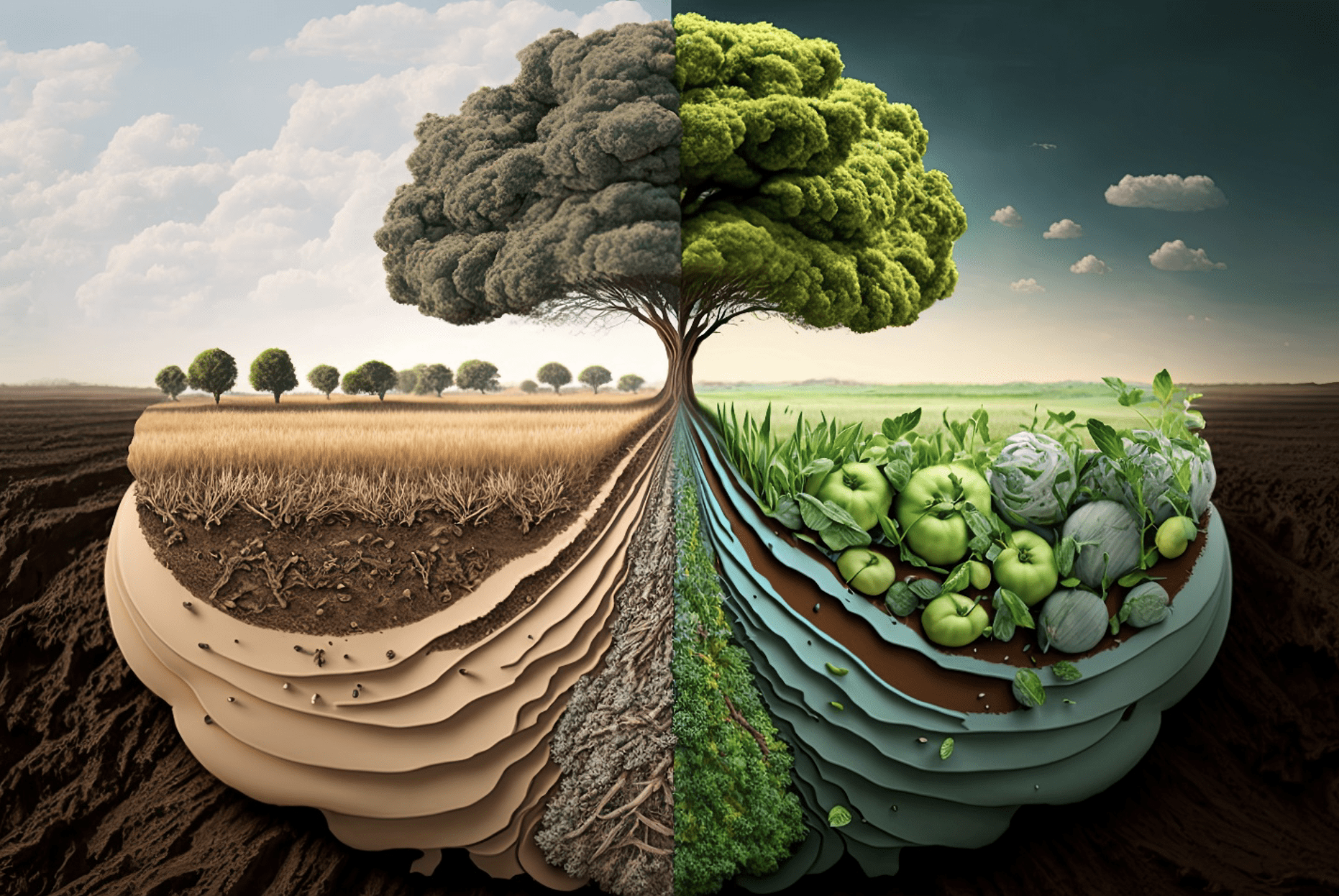Sustainably feeding a global population of nearly 8 billion is widely acknowledged to be one of the greatest challenges of the age. Bio-agriculture, a set of practices built on ecological balance and diversity, is increasingly seen as an important solution to this massive problem.
“Bio-agriculture, in a nutshell, means ‘green and environmentally responsive and responsible inputs and technologies,'” says Roger Tripathi, CEO and founder of Global BioAg Linkages.
This type of farming requires three things, according to him: balancing the physical, chemical and biological facets of the soil; restoring mineral and microbial balance in soil; and increasing soil carbon levels.
“This outcome is only possible by combining and integrating the best of conventional and natural farming, reducing farmers’ and consumers’ health imbalance and risks,” he says.
Global BioAg Linkages provides local expertise to the agricultural industry on just how to achieve this. Its global network provides a number of services including assistance with fundraising and regulatory matters, HR resources, marketing plans and audits and the BioAgTech World Congress event held annually.
Tripathi (RT) recently caught up with AgFunderNews to discuss the importance of Bio-agriculture and where it is headed next.

AFN: What are some of the world’s core agriculture challenges? Why is bio-agriculture necessary to address these challenges?
RT: Though providing quality food for all with shrinking resources is the major challenge, sustainability and efficiency are undoubtedly two of the key universal needs and concerns for agriculture.
An important thing to focus on is to go back to the principles of indigenous agricultural practices while leveraging modern technology. Bio-ag in combination with agtech is the answer to many of these soil and plant health issues.
Soil health is the mother of everything in agriculture. There is a need to revisit the concept of mother nature to respect natural resources and use them judiciously while utilizing precision and agech to obtain maximum output. Agriculture today has to be sustainable, efficient, farmer-centric, satisfactory to consumers, and environmentally friendly. bio-ag, precision ag, agtech, and biotech all have to go hand in hand.
Innovation forms the backbone of any business; agriculture is no exception. The use of artificial intelligence, nanotechnology, GPS for agriculture, robotics, IoT, etc. have the capability to revamp agriculture. That is why BioAg World Congress now has evolved into BioAgTech World Congress.
That said, innovation does not always mean creating something which has never existed before; it is also the application of existing concepts or technology to meet an unsolved problem. Undoubtedly, we need more and more innovations to meet our sustainability and food security goals, but we also need ideas to use existing innovations in new or better ways. I call it ‘Integrated Sustainable Farming Practices’.
AFN: How are corporates responding to the need for bio-ag innovation?
RT: Companies in the agriculture sector understand that it is high time to move to bio-ag. More and more agricultural companies are getting interested in the sector and are exploring ways to contribute.
Leaders like Syngenta, Corteva, UPL, Bayer and many more continually invest in bio-ag. As such, we are also seeing major mergers and acquisitions happening across the board, which clearly indicates the growing interest of corporates in the ongoing R&D and development of interesting products and technologies by startups. At GBL we understand working in isolation is not in the best interest of agriculture, therefore at BAW Congress, we bring together all the serious bio-ag players on one platform with an intent to build a strong bio-ag community to support each other and make Bio-ag thrive.
AFN: What could be a hotbed for bio-ag innovation in the future?
RT: Brazil is a key player in global agriculture, it being the leading exporter of a wide range of crops to the world. The geographical and climatic advantages, rich biodiversity, which is continuously expanding, plus the favorable agriculture policies of Brazil all make Brazil the right place for revolutionary innovations in bio-ag.
I have believed for years that Brazil would soon be a world leader in bio-ag, long before it ramped up to the heights it is today. This is precisely why we chose the location for the last BAW Congress. Latin America has been recognized to have one of the world’s best agriculture and food systems. Brazil has led in consolidations and has seen a huge number of mergers in the last few years. More and more bio-ag companies are entering the Brazilian agriculture market. All these factors together have highlighted the Brazilian Agriculture industry on the world map. Success of a truly global BAW Congress in Brazil was also due to the fact that Latin America with Brazil is taking the lead.
AFN: What types of technologies and innovations in bio-ag do you find exciting?
RT: Nearly everything happening in bio-ag technology and innovation is highly exciting. It is amazing to see the application of advanced technologies such as understanding and tailoring innovation with soil and plant microbiomes, AI, GPS, robotics, and drones to make agriculture more efficient. This collaboration of technology and agriculture to come up with new agtech and precision ag to solve the pressing issues gets me going.
I also enjoy seeing collaboration in the way of mergers and acquisitions which are strengthening our industry and infrastructure allowing us to bring our bio-ag products to the world’s stage. Future agriculture is going to be about getting the most value from every cent invested while regenerating our soils and environment, and these technologies are just the start.

AFN: Are there any startups leading bio-ag innovation that you are impressed by?
RT: Bio-ag is filled with so many startups entering the space. We are blessed to have many new startups joining us in the bio-ag community. It is thrilling to see the next generation interested in bio-ag and making efforts to enter this tough landscape and make a difference.
While a good number of startups are in the space, only a few of them are able to sustain themselves. Most of these startups have either a new product or technology or a new perspective to look at the existing issue. The time, effort, and cost required to scale up and commercialize the product are high, and even higher is the competition. Startups have to be very resourceful and perform with minimal or no gains. I am a global citizen and work with several start-ups hence impressed by the commitment and skills of several of them. It would be unfair for me to mention just a few, as so many of them are exciting and will change the landscape of sustainable farming.
I would share a few tips with my start up folks; do not start and execute exit in mind from day one, keep raise/earn and burn rate in balance and check, if you get diluted too fast, you will also lose control of your vision and dream, give preference to your vision not ego and lastly synergize with like-minded partners for the things you can’t do justice, do not try to do everything yourself internally.




